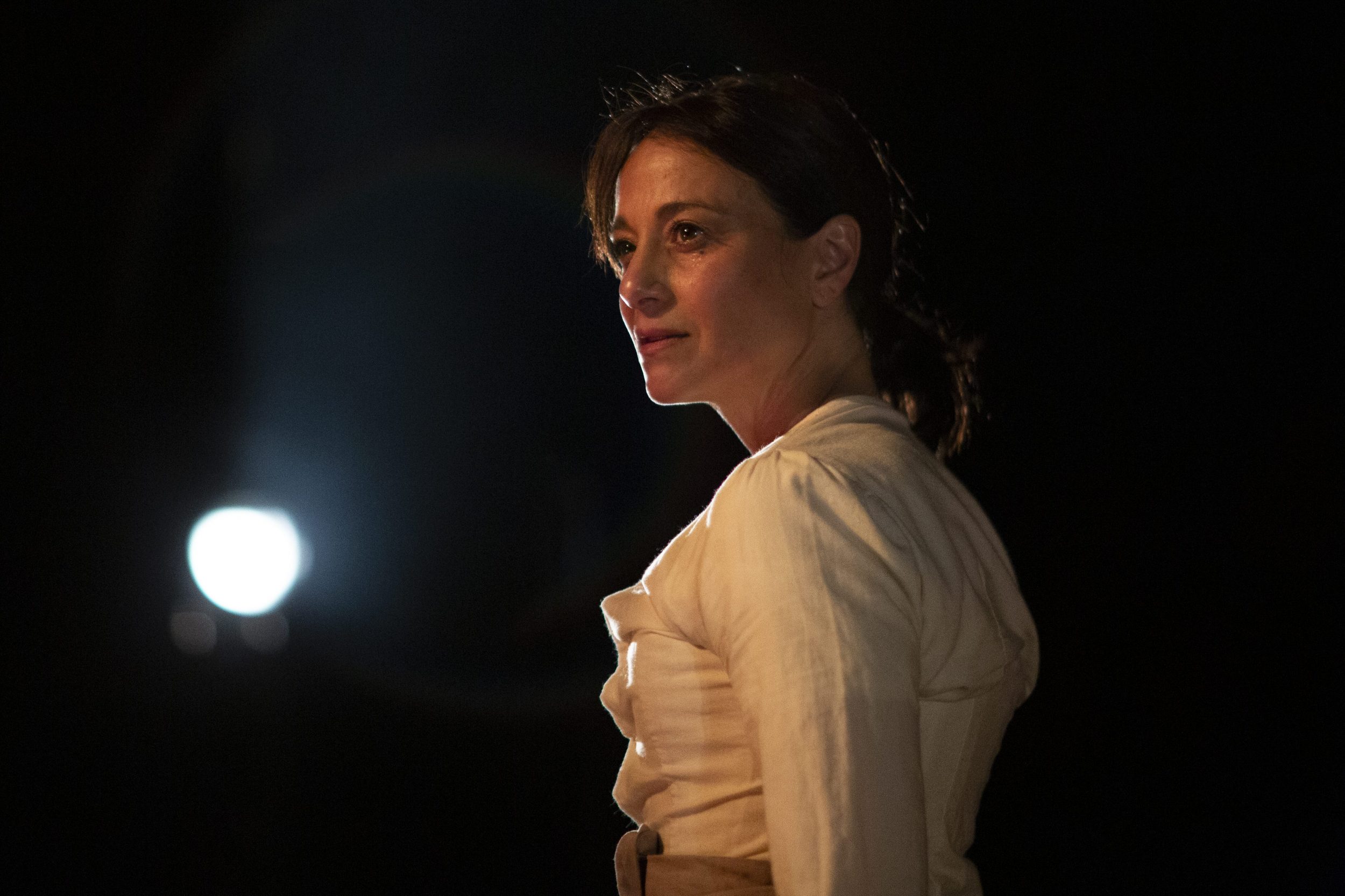★★★★
Ella Hickson’s Oil begins in smoky darkness. Lit only by candles, actors emerge in period dress and begin laborious tasks: cleaning, baking, wood chopping. This is life on the Singer Farm in Cornwall, 1889, where a tough matriarch (Jennifer Vulvetic) heads a family of hardworking women and abusive, controlling men. When an American visitor (played by Darcy Brown) arrives, he shows them an incredible new discovery: the oil lamp. Most of the Singers are sceptical, but mother-to-be May (Daniela Farinacci) is astonished; she sees oil for its monetary opportunities, yes, but also its world-changing potential. Yearning for autonomy, May leaves behind her husband Joss (Charlie Cousins) and sets off to carve out her own life – her own future.
First performed in London in 2016, Hickson’s intelligently-observed play makes its Australian debut through Red Stitch Actors’ Theatre. Directed by Ella Caldwell, their Oil is an engaging, worldwide epic spanning two centuries. Intimately staged in their South Yarra theatre, the play’s sets run through the audience, making viewers aware of their status as a voyeur. Oil’s performances are very physical and diverse, carrying a sense of danger in the early sequences that simmer with male rage. There’s an excellent sense of blocking and choreography, too, that knows just how to direct the audience’s attention.
Time is slippery in Oil. Bold scene transitions unfold before the audience’s eyes, moving further forward in history with distinctly newer clothes, sounds and settings. Symbols, motifs and lines of dialogue recur in a fun way, highlighting both history’s cyclical nature and the world changing with the rise of capitalism and consumerism. May and her daughter Amy (Hannah Fredericksen) are the main constants through the play, a family transcending time, a fascinating device that’s not sci-fi so much as it is metaphorical.
As most of the characters are British and white, there’s a smart awareness of the entitlement and supremacy to the oil exploits on display. For example, a British officer (Matthew Whitty) that May meets in 1908 Tehran regards the locals as savages wasting a potentially rich resource, reaffirming deep roots of imperialism and racism within the UK. May and Amy are not exempt from this criticism, either. Through May’s rise to the top of the industry, Oil is critical of the western corporations and governments that exploit countries (such as Iraq, Yemen and Saudi Arabia) for their oil. But the play is also critical of the white privilege that May has, even when they want to help, adding another nuance to the work.
Still, May and Amy are the emotional through-line of the play. Farinacci and Fredericksen play many incarnations of the characters, imbuing each of them with intensity and humour. Despite their increasingly combative relationship, May and Amy have more in common than they’d care to admit. Both share a special wildness, and are haunted by apparitions through time: May by the guilt of leaving Joss behind, Amy by a vision that alludes to oil’s horrifying, despairing potential. While the greed of those with power – and the desperation of those without – might become too big for the Earth someday, Oil argues that love will remain, endlessly.
Red Stitch’s production of Oil is running until Sunday December 15 at Cromwell Road Theatre.
Never miss a story. Sign up to Beat’s newsletter and you’ll be served fresh music, arts, food and culture stories three times a week.

